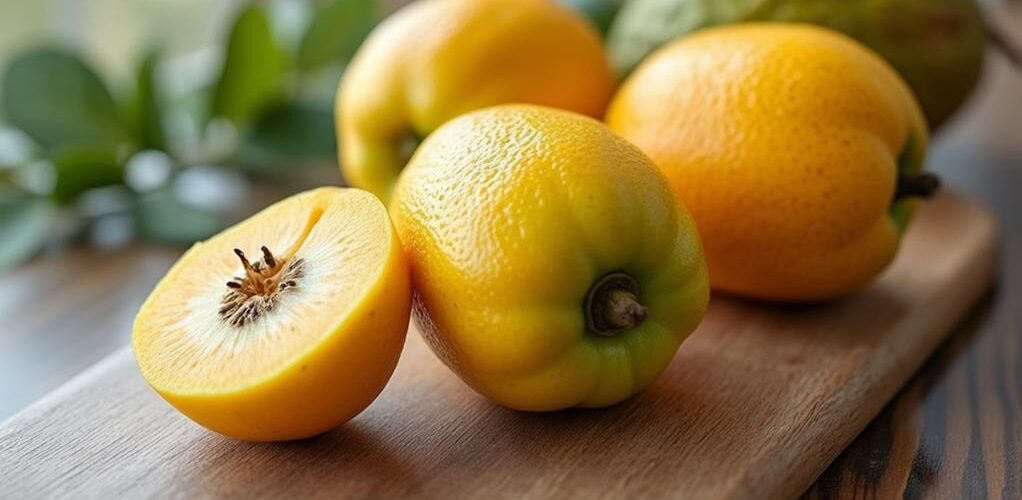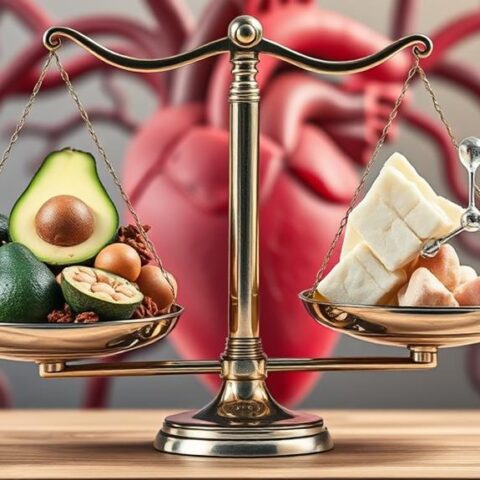
Avocados, blackberries, and lemons are ideal fruits for a ketogenic diet due to their low net carbohydrate content and numerous health benefits. Avocados provide only 1.5 grams of net carbs per 100 grams, along with heart-healthy fats and significant potassium, vitamins K, C, and B6. Blackberries offer 6.4 grams of net carbs per cup, are rich in fiber and vitamins C and K, and provide antioxidants to reduce inflammation. Lemons contain 4 grams of net carbs, are packed with vitamin C, and support hydration and digestion. These fruits not only fit keto macros but also deliver essential nutrients. Discover more about their culinary uses and wider benefits.
Key Takeaways
- Avocados are keto-friendly with only 1.5 grams of net carbs per 100-gram serving.
- Rich in healthy fats, avocados can help reduce bad cholesterol levels.
- Blackberries offer 6.4 grams of net carbs per cup, making them suitable for keto.
- Lemons provide only 4 grams of net carbs and enhance flavor without many calories.
- Both blackberries and lemons are rich in vitamin C and antioxidants.
Avocados
Renowned for their versatility, avocados are a unique fruit that fit seamlessly into a keto diet due to their low net carbohydrate content. A 100-gram serving of avocado contains approximately 8.5 grams of total carbohydrates, with nearly 7 grams of this being fiber, resulting in a mere 1.5 grams of net carbs. This low net carb content makes avocados particularly suitable for those following a ketogenic lifestyle, where carbohydrate intake is strictly limited.
Beyond their carbohydrate profile, avocados are rich in heart-healthy monounsaturated fats, which are known to enhance heart health and potentially reduce bad cholesterol levels. These healthy fats also aid in promoting satiety, helping individuals feel fuller for longer, a significant benefit for those managing their macronutrient intake on a keto diet.
Additionally, avocados are a powerhouse of essential nutrients, offering approximately 20% of the daily value for potassium, alongside significant amounts of vitamins K, C, and B6. Incorporating avocados into meals is not only nutritious but also delicious. Guacamole recipes, for example, capitalize on the creamy texture and subtle flavor of avocados, providing a satisfying and nutrient-rich option for keto enthusiasts while maximizing the avocado benefits.
Blackberries
Although often overlooked in the domain of keto-friendly fruits, blackberries offer a compelling profile that aligns well with the ketogenic lifestyle. With approximately 14.4 grams of carbohydrates per cup, blackberries might initially seem unsuitable for low-carb enthusiasts. However, the significant fiber content—7.95 grams per cup—translates to about 6.4 grams of net carbs, making them a viable option for those adhering to a keto diet. This aligns with the benefits of reducing carbohydrate intake, which can contribute to improved insulin sensitivity and better blood sugar management, essential for individuals managing type 2 diabetes.
The health benefits of blackberries extend beyond their carbohydrate profile. They are rich in essential vitamins and minerals, particularly providing 24% of the daily value (DV) for vitamin C and 36% DV for vitamin K per serving. These nutrients support immune function and bone health, essential considerations for a balanced diet.
Additionally, blackberries are a low-calorie fruit, containing just 62 calories per cup, which aids in calorie management.
Moreover, the high fiber content (7.63 grams per cup) in blackberries aids digestion and promotes satiety, assisting with weight management—an important aspect of the ketogenic diet. Packed with antioxidants like anthocyanins, blackberries also contribute to reducing inflammation and potentially lowering the risk of chronic diseases, offering further health benefits.
Lemons
A staple in the domain of keto-friendly fruits, lemon's versatility and nutritional profile make it an excellent choice for those adhering to a low-carb lifestyle. Containing approximately 5.5 grams of carbohydrates and 1.5 grams of fiber per fruit, lemons yield about 4 grams of net carbs, positioning them as a suitable option for ketogenic dieters.
Rich in vitamin C, a medium lemon provides around 31% of the recommended daily intake, which supports immune function and skin health. Additionally, the juice of one lemon contains only about 11 calories, allowing it to enhance flavors in keto recipes without markedly impacting carbohydrate intake. For individuals following the ketogenic diet, maintaining hormonal balance is essential, and lemons can contribute to this by addressing potential nutritional deficiencies due to their vitamin-rich profile.
The lemon benefits extend beyond its nutritional content. Known for antioxidant properties, lemons help combat oxidative stress, potentially contributing to overall health and longevity.
Incorporating lemon juice into water or culinary creations can enhance hydration, improve digestion, and aid in weight management, aligning well with ketogenic principles. Whether utilized in savory lemon recipes or as an invigorating addition to beverages, lemons offer a myriad of culinary applications.
Their capacity to boost flavor while maintaining a low-calorie profile makes them an indispensable component of a keto-friendly diet, promoting both health and culinary delight.
Frequently Asked Questions
What Are the Health Benefits of Eating Fruits on a Keto Diet?
Incorporating fruits into a ketogenic diet offers health benefits such as enhanced nutrient density and improved digestive health due to their fiber content. These attributes contribute to overall well-being while aligning with low-carbohydrate dietary goals.
How Can Fruits Fit Into Daily Keto Meal Planning?
Incorporating fruits into daily keto meal planning requires careful fruit portioning and selecting low carb options to maintain ketosis. Emphasizing portion control supports the diet's macronutrient balance, ensuring fruit consumption complements overall carbohydrate intake goals.
Are There Any Fruits to Avoid on a Keto Diet?
On a keto diet, it is advisable to avoid fruits high in fruit sugar, such as bananas and grapes, due to their carb content. Opt for low carb options like berries, which align better with keto guidelines.
How Do Fruits Affect Ketosis?
Fruits can impact ketosis by influencing blood sugar levels due to their glycemic index. To maintain ketosis, opting for low glycemic index fruit alternatives, like berries, can help manage carbohydrate intake while still providing essential nutrients.
What Is the Best Time to Eat Fruit on a Keto Diet?
Ideal fruit timing on a keto diet involves consuming keto-friendly fruits as snacks between meals to maintain ketosis. Eating fruit in moderation, alongside high-fat, low-carb meals, helps manage insulin response while providing essential nutrients.
Conclusion
To sum up, avocados, blackberries, and lemons emerge as ideal fruits for a ketogenic diet due to their low carbohydrate content and rich nutrient profiles. Avocados provide healthy fats and fiber, supporting ketosis and satiety. Blackberries offer antioxidants and fiber with minimal sugar impact, making them a suitable choice. Lemons, with their low sugar and vitamin C content, enhance flavor and nutritional value without disrupting ketosis. Incorporating these fruits can effectively complement a ketogenic dietary regimen.









No Comments